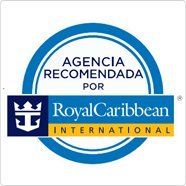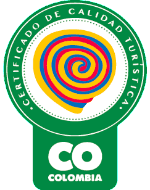Hours: LV: 9 AM 5PM S: WhatsApp only until 1PM RNT:10790
Sustainability
RESPONSABLE TOURISM
Advice based on the Global Tourism Code of Ethics of the World Tourism Organization
● You must maintain order and cleanliness on the beaches and natural areas you visit. Do not throw garbage or food scraps. Take special care in protected natural areas. Try to minimize the generation of garbage, reject products with unnecessary packaging and choose to use recyclable packaging.
● Take care of the rooms and the different facilities at your service. Treat locals and hotel employees with respect. Remember to drink in moderation so as not to affect other people with possible behaviors under the influence of alcohol.
● Respect human rights. Any form of exploitation violates the fundamental objectives of tourism. Child sexual exploitation is a punishable offense, both in the place where it is carried out and in the tourist's country of residence.
● Protect wildlife and don't buy products made from endangered plants or animals.
● Respect cultural resources. Tourist activities must be practiced with respect for artistic and cultural heritage.
● Your trip can contribute to economic and social development. Buy local handicrafts and products to support the local economy, and abide by the principles of fair trade. Handicrafts are the most important reflection of local culture and identity and their benefits go directly to the populations of the towns visited. In addition, they are produced with a very low impact on the environment and contribute to increasing the value of local culture.
● Keep in mind to close the taps well, turn off the air conditioning and the lights when you leave the hotel. Thus, it helps not to waste water and energy, extremely valuable resources for the entire planet.
Responsible Tourism
Our Programs
-
Water Saving Control the irrational consumption of water, seek optimal use of the resource and mitigate the impact caused by carrying out one's own activities, generating ecological awareness and commitment to best practices.
button text Water Saving -
Energy Saving Program Control irrational energy consumption, seeking optimal use of the resource and mitigate the impact caused by carrying out the company's own activities, generating ecological awareness and commitment to best practices.
button text List item 2 -
Integral management of residues Control the generation and inappropriate disposal of waste, in search of mitigating the negative impacts caused to the environment, through strategies that allow creating ecological awareness and commitment to the development of best practices in the company's human talent.
button text List Item 3 -
Chemical Minimization Program The main objective of this program is to minimize the use of chemical products and to give good management to products that can affect the environment.
button text List item 4 -
Social Development Program To be promoters of social development as an opportunity to develop and improve the quality of life of each individual and of society as a whole.
button text Social Development Program -
Flora Fauna Protection Program Implement strategies for the care of fauna and flora by caring for them in this way we will help the country and the world to raise awareness that nature is being destroyed day by day
see more Flora Fauna Protection Program -
Prevention and Sexual Exploitation Program Awaken the action-oriented awareness of all personnel regarding the prevention of commercial sex with minors.
see more Prevention and Sexual Exploitation Program -
Cultural heritage strengthening program Identify the cultural heritage sites that the region has in order to disseminate them for a cultural and economic contribution at the local level.
see more Cultural heritage strengthening program -
Pollution prevention program, atmospheric, auditory and visual Promote the control and reduction of atmospheric, auditory and visual pollution
see more Pollution prevention program, atmospheric, auditory and visual
SUSTAINABILITY POLICY
At Travel And Business Solutions SAS TRAVELGUIAS.COM we are committed to developing our activities under sustainability guidelines with the aim of promoting and encouraging the following good practices for internal processes:
● Make optimal use of environmental resources that are a fundamental element of tourism development, maintaining essential ecological processes and helping to conserve natural resources and biological diversity.
● Promote the reduction of energy and water consumption, avoid water pollution, minimize waste and promote the recycling of resources that allow it.
● Direct the functions of our agency to avoid any type of physical or moral risk for its stakeholders.
● Contribute to the preservation of the uniqueness of the destinations offered in order to preserve the tourist heritage. Likewise, provide more information on the cultural and social heritage of the different destinations that are being operated.
● Ensure long-term viable economic activities that bring well-distributed socio-cultural benefits to all stakeholders, including opportunities for stable employment and income-earning and social services for host communities, and that contribute to the reduction of poverty.
● Carry out promotional campaigns on the rejection of child sexual exploitation in the world. Likewise, participate in activities that generate benefits for vulnerable segments in the community.
● Promote the hiring of native personnel from destinations that are marketed, giving more employment to people in the region.
Sustainability Policy
In Travel And Business Solutions SAS TRAVELGUIAS.COM we are committed to developing our activities under sustainability guidelines in order to promote and develop the following best practices for internal processes:
● To make optimal use of environmental resources that constitute a key element in tourism development, maintaining essential ecological processes and helping to conserve natural resources and biodiversity.
● To reduce the consumption of energy and water, prevent water pollution, minimize waste and encourage recycling of resources allow.
● To route functions of our agency to avoid any kind of physical or moral risk of its stakeholders.
● To contribute to the preservation of the uniqueness of the destinations offered in order to preserve the heritage tourism. Also give more information on the cultural and social heritage of the various destinations that are taking place.
● To ensure viable economic activities in the long term to report to all stakeholders that are fairly distributed socio-cultural benefits, including opportunities for obtaining stable income and social services to host communities have employment, and contribute to reducing the poverty.
● To promote campaigns on the rejection of child sexual exploitation in the world. Also, engaging in activities that generate benefits for vulnerable segments in the community.
● To hire innate staff in destinations that are marketed giving more jobs to people in its regions.
Code of conduct - Against child exploitation
In order to counteract exploitation, pornography and sexual tourism with children and adolescents, in Travel And Business Solutions SAS TRAVELGUIAS.COMIn compliance with Law 679 of 2001, Law 1336 of 2009 and Resolution 3840 of 2009, we commit to the following legal obligations:
- ● Refrain from expressly or surreptitiously offering plans for the sexual exploitation of minors in tourism promotion programs and tourism plans.
● Adopt measures to prevent employees of Travel And Business Solutions SAS TRAVELGUIAS.COM, dependents or intermediaries, from offering tourist services that include sexual contact with minors.
● Protect national or foreign minors from all forms of exploitation and sexual violence originated by national or foreign tourists.
● Incorporate in our tourist advertising, information on the legal consequences of exploitation, pornography and sexual tourism with children and adolescents.
● Refrain from giving information to tourists, directly or through their employees, about places from where they coordinate or where sexual services with minors are provided.
● Refrain from driving tourists to establishments or places where prostitution of minors is practiced.
● Refrain from driving minors, directly or through employees, to places where tourists are staying, even if they are places located on the high seas, for the purpose of prostitution of minors.
● Refrain from leasing or using vehicles on tourist routes for the purpose of prostitution or bars, similar businesses and other tourist establishments for the purpose of prostitution or sexual abuse of minors.
● Prevent minors from entering hotels or lodging places, bars, similar businesses and other tourist establishments for purposes of prostitution or sexual abuse of minors.
● Reject child labor exploitation.
● Reject discrimination based on race or gender.
● Promptly communicate to the local police and/or competent authorities, the cases of sexual commerce with minors that are detected with the suppliers.
● We ask customers, suppliers, partners and other agencies to deny involvement in child sexual exploitation and to report all cases of child sexual exploitation of which they become aware.
● Report to the Ministry of Commerce, Industry and Tourism, the Office of the Attorney General of the Nation, the ICBF, and other competent bodies, the facts related to the sexual exploitation of minors.
Code of Conduct · Against child exploitation
- ● Refrain from offering programs in tourism promotion and tourism plans, express or surreptitiously plans sexual exploitation of children.
● Adopt measures to prevent workers Travel And Business Solutions SAS TRAVELGUIAS.COM dependent or intermediaries, offering tourist services that include sexual contact with minors.
● Protecting foreign minors from all forms of sexual exploitation and domestic violence caused by foreign tourists or age or national.
● To incorporate in our tourism advertising, information on the legal consequences of the exploitation, pornography and sexual tourism involving children and adolescents.
● Refrain from providing information to tourists, directly or through their employees about places where you coordinate or where sexual services with minors.
● Refrain from driving tourists to establishments or places where prostitution of minors is practiced.
● Refrain from driving to minors, directly or through employees, to places where tourists are staying, even if it is located offshore locations, for purposes of prostitution.
● Refrain from lease or use vehicles in tourist routes for prostitution or bars, similar businesses and other tourism establishments for prostitution or sexual abuse of minors.
● Prevent the entry of minors to hotels or places of accommodation and lodging, bars, similar businesses and other tourism establishments for prostitution or sexual abuse of minors.
● Refuse child labor.
● Rejecting discrimination based on race or gender.
● Timely reporting to the local police and / or competent authorities, cases of child sex trade are detected with suppliers.
● We ask the customers, suppliers, partners and other agencies to reject participation in the sexual exploitation of children and to report all cases of sexual exploitation of children which they are aware.
● Report to the Ministry of Commerce, Industry and Tourism, the Attorney General's Office, the ICBF, and other relevant agencies, the facts relating to the sexual exploitation of minors.
Against exploitation, pornography and sexual tourism involving children and adolescents, Travel And Business Solutions SAS TRAVELGUIAS.COM in compliance with Law 679 of 2001, Law 1336 of 2009 and Resolution 3840 of 2009 We are committed to the following legal obligations:
HERITAGE PROTECTION
"The term Heritage is usually defined as our legacy from the past, our baggage in the present and the inheritance that we will leave to future generations so that they can learn, marvel at and enjoy it." UNESCO, 1998.
Cultural heritage"The Cultural Heritage of the Nation is made up of all material goods, immaterial manifestations, products and representations of culture that are an expression of Colombian nationality, such as the Spanish language, the languages and dialects of indigenous communities, Black and Creole, tradition, ancestral knowledge, cultural landscape, customs and habits, as well as material goods of a movable and immovable nature to which are attributed, among others, special historical, artistic, scientific, aesthetic interest or symbolic in areas such as plastic, architectural, urban, archaeological, linguistic, sound, musical, audiovisual, film, testimonial, documentary, literary, bibliographic, museological or anthropological", according to Law 1185 of 2008, "By which and adds Law 397 of 1997 - General Law of Culture - and other provisions are issued”.
Cultural Heritage is made up of:
I. Material or Tangible Heritage:
It is as its name indicates, the materialization of culture, what we can touch. In turn, this heritage is subdivided into several groups:
Immovable Heritage: it is what cannot be moved and includes cities, squares, parks and buildings, among others.
Movable Heritage: which is made up of bibliographic and documentary collections, monuments in public spaces, sculptures, works of art, utensils for domestic use, etc.
II. Intangible or Intangible Heritage
They are those manifestations, expressions, knowledge and practices that give a community and a human group a sense of identity, belonging and historical continuity. These manifestations are transmitted from generation to generation.
Up to now, the representative list of Intangible Cultural Heritage at the national level is made up of five cultural manifestations (with 5 manifestations since the issuance of Law 1185 of 2008):
black and white carnival
Traditional Knowledge of the Nukak-Maku
Paipa National Band Contest
Wayuu Palabrero Institution
Dirty River Carnival
Two manifestations belong to the Representative List of the Intangible Cultural Heritage of Humanity:
Barranquilla Carnival
Cultural Space of San Basilio de Palenque
Natural heritage It is the set of all protected natural areas in the country. UNESCO said in 1972 about this type of heritage: “Natural monuments consisting of physical and biological formations that have aesthetic or scientific value; the geological and physiographic formations that constitute the habitat of threatened animal and plant species, that have value from the scientific or conservation point of view; and natural places that have value for science, conservation and natural beauty.
Fountain: Ministry of Education, Colombia Learns
Heritage Protection
“The term of Heritage is often defined as our legacy from the past, our luggage in the present and the legacy we will leave to future generations so they can learn, marvel and enjoy it.” UNESCO, 1998.
Cultural Heritage “The Cultural Heritage of the Nation consists of all material goods, intangible manifestations, products and representations of culture which are an expression of Colombia, such as the Spanish language nationality, languages and dialects of the indigenous communities, black and creoles, tradition, ancestral knowledge, cultural landscape, customs and habits, as well as furniture material goods and property nature to which is attributed, among others, special historical, artistic, scientific, aesthetic or symbolic in areas like plastic, architectural, urban, archaeological, linguistic, sound, musical, audiovisual, film, testimonial, documentary, literary, literature, museum or anthropological “according to Law 1185 of 2008″ Whereby is modified and supplementing the Law 397 of 1997 -Law General of Culture and other provisions. ”
Cultural Heritage is comprised of:
I. Material or tangible heritage::
It is as the name implies, the materialization of culture, what we can touch. In turn this heritage is subdivided into several groups:
Heritage property: is what can not move and includes the cities, parks and buildings, among others.
Heritage furniture: it is made up of library collections, documentaries, monuments in public space, sculptures, works of art, household utensils, etc.
II. Intangible heritage
They are those statements, expressions, knowledge and practices that give a community and a group of people a sense of identity, belonging and historical continuity. These expressions are passed from generation to generation.
In the list of Intangible Cultural Heritage representative at the national level it is made so far by five cultural events (5 events since the enactment of Law 1185 of 2008):
Carnival of Blacks and Whites
Traditional knowledge of the Nukak-Maku
National Band Competition Paipa
Wayuu institution babbler
Carnival in Rio Sucio
The representative list of intangible cultural heritage belong two manifestations:
Carnaval de Barranquilla
Cultural Space of Palenque de San Basilio
Natural Heritage It is the set of all natural protected areas in the country. UNESCO said in 1972 this heritage: “The consistent natural monuments in physical and biological formations, which are aesthetic or scientific value; geological and physiographical formations that provide habitat for endangered animals and plant species that have value from the point of view of science or conservation; and natural places that have value for science, conservation and natural beauty.
Important Links

















